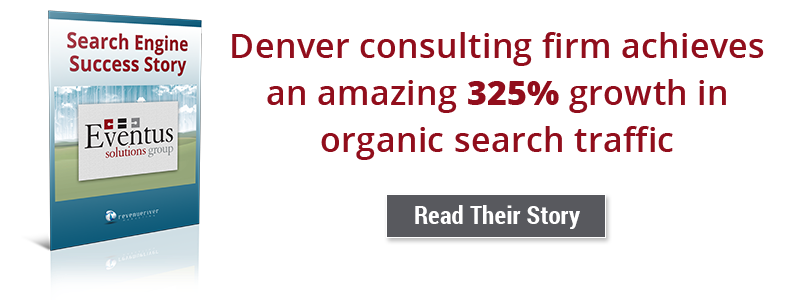3 Ways to Make Your Company One of the Best Places to Work at in the World


The following was originally published on LinkedIn Pulse...
A great company on Wall Street is not necessarily what employees think of as a great company. Outside of Google, Apple and Yahoo, how many companies come to mind that do well in the public sector that and has employees boasting about working there? Why is it that when LinkedIn offered their employees unlimited vacation that it made national headlines? Is it possible that these companies do so well because they treat their employees like humans and not overhead?
I work at a progressive marketing agency. We don’t have time off restrictions nor do we have set hours to come into the office. We have a fully stocked bar and kitchen. We have only one rule; get your job done and do it well. The unwritten policy is that if you move the needle forward, the agency will be rewarded and so will you and your colleagues. Why is that model so difficult for companies to understand?
As I was writing, I found the post becoming extraordinarily negative. I’ve been really lucky in my professional life. I’ve never been laid off, I don’t have any gaps on my resume, I’ve worked with people I like, yet despite all that, the negatives still stand out. Of course, I’ve had to work hard to keep moving forward in my career, especially during the recession, which was a huge game changer for employer/employee relationships.
Only 51% of employees have trust and confidence in senior management.
I understand that shifts need to be covered and that most companies can’t have an unlimited time off policy because of that. I understand that alcohol has to be consumed responsibly and that it’s a liability to have an open bar policy. I understand that the costs of providing unlimited food for every employee are, for the most part, cost prohibitive, no matter the size of a company. That being said, there are things every employer can do to make their company a place to be proud of.
Anyone who goes to work for a company wants to be proud of where they work. They want to be able to brag about how they're treated, their perks, their benefits, rarely do you hear people bragging about their salary. Sure, it’s important to make a nice salary, a salary they deserve, but it’s not why people wake up to go to work in the morning when it is that’s a problem. There are three simple steps to make your company great, which all come straight from the 7 Habits of Highly Effective People book that everyone in business should be familiar with…
Treat People Like They Want to Be Treated
People love their jobs until they’re given a reason not to. Too often that comes on day one when the person sitting next to them questions their sanity for accepting their job offer. Every job has people who are negative and spread that negativity. There’s a reason that they’re like that, though, something has triggered it. If managers would take the time to learn about their employees; their triggers, their goals, even to some degree their personal lives, they’d be able to treat each individual like an individual and not a one size fits all labor machine. That negative person spreading vitriol as people walk in the door would likely be singing a different tune if he was treated the way he wants to be treated.
The adage is to treat people like you want to be treated, but that’s not right, you need to treat people how they want to be treated. That requires getting to know people and empathizing with them as well. For example, if someone is continually late, find out why. Don’t start disciplinary action based on something as subjective as a starting time. Shifts need to be covered, but employees need to be happy to get great work done during those shifts. A little empathy goes a long way in getting the best work out of people.
Think Win-Win
I’ve been told before that my job was “mutually beneficial,” meaning I was benefitting as much as they were. Needless to say, that made me feel very valued. The circumstances were such that I understood why I was told what I was told, it still didn’t make me feel any better. I actually empathized with my employer rather than the other way around. (I don’t think that they were quite as studious as I am as to what makes a workplace function effectively, perhaps if everyone strived to be I wouldn't feel compelled to write this.) What job isn’t mutually beneficial? People get paid to work so that a company can function, win-win right? Of course, it’s not nearly that simple. Until I was told those words, I hadn’t put a great deal of thought into what is win-win in an employee/employer relationship actually is.
An employer will always get more from an employee than they’re giving back as far as money is concerned (with a few exceptions, of course). Dollar to dollar, the employer is going to win, that’s how businesses keep going. The pittance that I was getting compared to the value I was providing my employer, in the above example, was hardly tit for tat. I knew that, of course. But, I could hardly live on nothing, and, for the most part, liked my job so I wasn’t in a position to get myself fired over the outrage I felt over that statement.
Unwanted turnover is expensive. On average, it costs companies one and a half to two times the annual salary to replace an existing worker.
So if money is not win-win in the relationship, what is? This is where the above concept, “treat people like they want to be treated” becomes so important. An employee doing a great job is always a win for a company. Finding out what is a win for the employee is a bit trickier, but vital to them having a productive career and staying aboard long enough to get the necessary value out of them. For an employee, it might be working from home a day a week so they don’t have to deal with traffic. It might be having the annual holiday party in December rather than January just to save a few dollars in Q4. (In January it’s not a holiday party, it’s just a party) In other words, things that don’t require a substantial investment can be a real win and make someone really proud of where they work. The investment is in the time you spend learning what’s important to each employee.
(One hint to employers, giving the ability to work remotely not only shows trust but also gives people a tremendous amount of flexibility. Being hard-nosed about sitting at a desk from 8 – 5 doesn’t work anymore.)
Synergize
So many departments are siloed across companies. Teams do a fantastic job because of their wonderful synergy, but teams having their own synergy isn't enough. Companies need synergy across teams, across departments and most importantly across hierarchies. Just because the marketing department works well together and the sales department works well together doesn’t mean that sales and marketing work well together. Often there are inter-department rivalries and even hatred against one another. That’s no way to run a company and that's not a company most people would be proud to work for.
Everyone there should be working toward a common goal, to drive the company forward. How many layoffs could have been prevented over time if everyone at every company worked together for a common goal? According to Gallup $350 billion dollars a year is wasted due to workers not being actively engaged. Do you think a job or two could have been saved if these people were proud of where they worked? So much time and energy is wasted with petty rivalries and mistrust that countless jobs have been lost due to this mismanagement of assets.
Everyone in the company has to be on the same team. Like a left fielder and a first baseman don’t rival each other, neither should inside sales reps against call center reps. If the C-suite would take the time, to actually make it part of their duties, to not just hold carefully planned town halls, but to sit with employees and explain what’s going on in the “ivory tower” there would be no ivory tower. Everyone would be a team. Everyone would be proud of their contribution and most importantly, where they work.
With regard to trust, Gallup’s research shows that 96% of engaged employees, but only 46% of disengaged employees, trust management. As the age-old question goes, “Which came first—the chicken (distrust) or the egg (disengagement)?” It’s a self-perpetuating cycle that gradually grinds the organization to a crippled pace, or even to a halt.
Does it seem that hard to make a company great? It’s not. It takes the above, along with honesty, open minds, a willingness to change and to not be scared of other people’s ideas. All of those things should be second nature to anyone with any kind of success in business.
I’m fortunate to work where I do. I know that year after year we’ll become more and more successful because of the trust, because of the desire to work together and the investment that not only my boss has made in my colleagues and me but also the investment that we’ve made in the company. Our investment is our passion toward the company and willingness to do anything and everything to help it succeed.
I know I work at the best place in the world; no company can compete with it. I’d like to see everyone else in the same situation that I’m in, no matter the size of their company or industry. I know it’s possible. Everyone just has to make it happen.
All quotes courtesy of FranklinCovey - Speed of Trust

